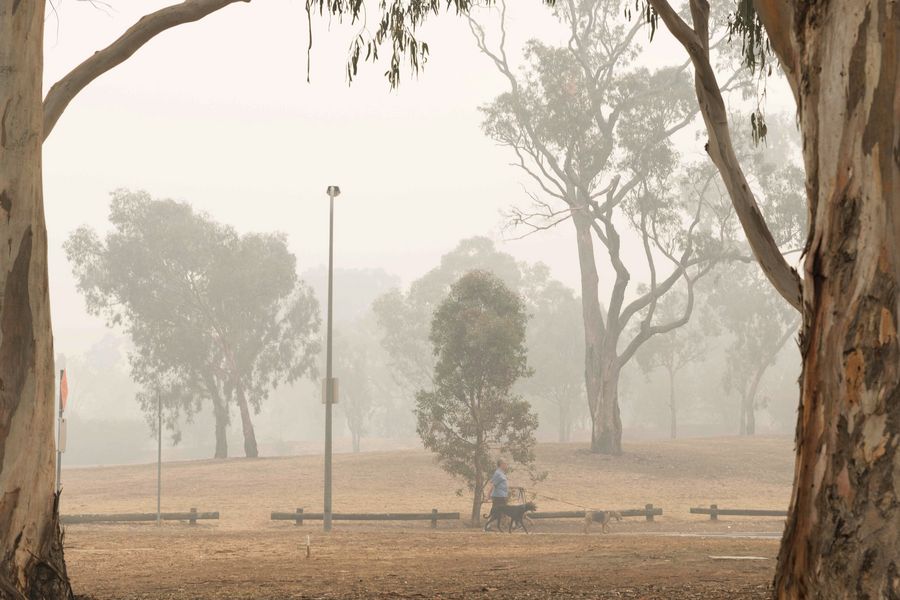
A pedestrian walks in a shroud of smoke near the Australian War Memorial in Canberra, Australia on Jan. 1, 2020. The smoke is caused by bushfires. (Photo by Liu Changchang/Xinhua)
An unprecedented State of Disaster was declared for six local government areas across the state of Victoria.
SYDNEY, Jan. 3 (Xinhua) -- Australian authorities have serious concerns for 28 people missing in the bushfire-affected East Gippsland in Victoria state on Friday.
Victorian Premier Daniel Andrews said that there were "grave fears for the safety and wellbeing" of those unaccounted for, with conditions expected to worsen over the weekend.
He added that the total number of missing would likely change as the crisis unfolded, and that some of those who were missing on Thursday had been located.
Andrews also confirmed on Friday that two people had lost their lives as a result of the Victorian fires this week, taking the national death toll for the season to 19.
An unprecedented State of Disaster was declared for six local government areas across Victoria, while in the state of New South Wales a State of Emergency was initiated for the third time this fire season.
The measures give extensive powers to emergency service officials to coordinate the disaster response, as well as dictate mandatory evacuations.
Australia's navy was called in to evacuate roughly 4,000 people who became trapped near the coastal town of Mallacoota, where they took shelter from deadly infernos which flared earlier in the week.
Concerns were also raised on Friday for the fire's impact on Australia's animal species, with roughly 5.9 million hectares of habitat burned across Australia since the start of the season.
"The fires will have killed millions of animals ... mammals, birds, reptiles," Wildlife Victoria boss Megan Davidson told the media.
According to Davidson, large numbers of both wildlife and livestock are needing to be euthanized as a result of injuries sustained by the fires.
"They are so severely burned that there is nothing better you can do than end their suffering," she said.
Many more animals are expected to perish in coming days as temperatures rise and they are unable to find water and shelter in decimated habitats. ■



